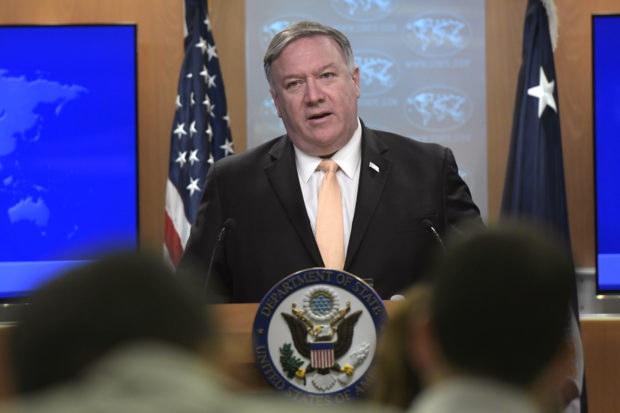Oil prices climb in wake of Iranian oil sanctions decision

Credit to Author: ggaviola| Date: Tue, 23 Apr 2019 22:24:31 +0000
NEW YORK — Global oil prices are rising in the wake of President Donald Trump’s decision to impose sanctions on nations that import Iranian oil and could eventually climb to levels that would impact American consumers.
Analysts said Tuesday that by taking Iranian crude off the market, the price of Brent crude oil — which is traded internationally — could rise to $80 per barrel or higher, depending on what happens in other countries where supply is at risk.
“That would certainly be felt by U.S. consumers, especially going into the driving season over the summer,” said Paul Sheldon, chief geopolitical adviser at S&P Global Platts Analytics.
International Brent oil rose 47 cents to $74.51 Tuesday while U.S. West Texas Intermediate rose 75 cents to $66.30.
The U.S. announced the sanctions in November but some countries got temporary waivers that allowed them to import Iranian oil. The U.S. now says those waivers, which primarily impact China, India, Japan, South Korea and Turkey, will expire May 2.
Prices haven’t been this high since late October.
Pavel Molchanov, energy analyst at Raymond James, said that the oil market was under-supplied even before the decision to end the waivers. Now that the waivers are being withdrawn, “we think it will be even more under-supplied than before,” he said.
The price of Brent crude oil could reach a high of $100 a barrel in 2020, which could have a more meaningful impact on the U.S. economy, Molchanov said.
But even before then, countries with weaker economies and currencies and little to no oil supply of their own such as Pakistan, Bangladesh and Sub-Saharan African countries will feel the pain of rising prices, he added.
Raymond James had predicted a global undersupply of 740,000 barrels per day in 2019, and an additional undersupply of 460,000 barrels per day in 2020 prior to Monday’s announcement. Ending the sanction waivers contributes to the undersupply by another 300,000 barrels a day, Molchanov said.
President Donald Trump made the decision as part of the administration’s “maximum pressure” campaign on Iran that aims to eliminate all of its revenue from oil exports that the U.S. says funds destabilizing activity throughout the Middle East and beyond.
U.S. Secretary of State Mike Pompeo said Monday the U.S. is counting on ally Saudi Arabia and other producers to ensure sufficient supply, along with increased U.S. production.
Analysts expect Saudi Arabia to move cautiously to fill in the gaps because if the country moves too quickly to boost supply that could depress the price.
Trump announced sanctions last year, but the waivers wrong-footed key oil producing countries in the OPEC cartel after they had increased supply in expectation of lower Iranian exports. /gsg